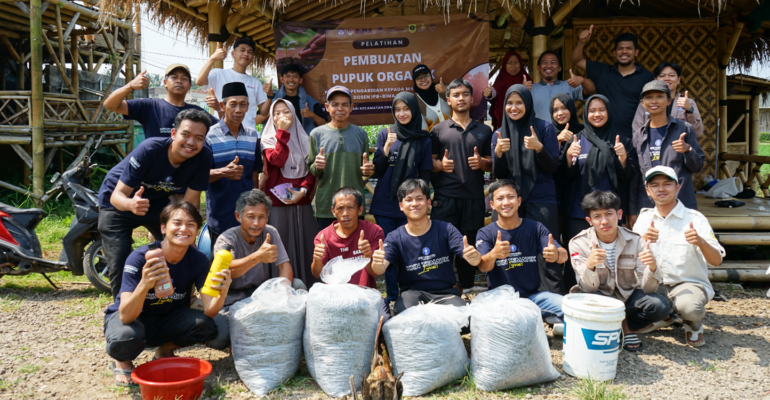Turning Sheep Manure Waste into Valuable Use, KKNT Innovation IPB University Students Provide This Training

IPB University’s Innovation Real-Thematic Work Lecture (KKNT) students collaborate with the people of Purwasari Village. They unite to create a sustainable solution in the form of organic fertilizer production.
Purwasari Village, located in Dramaga District, Bogor Regency, West Java, is known for its rich agricultural potential. However, it is now facing challenges related to organic waste management. KKNT Innovation IPB University students see an opportunity to overcome this problem by inviting the local community to learn together to manage livestock waste into more valuable and useful organic fertilizer.
The activities carried out by KKNT Innovation IPB University students began with an educational approach to the community about the benefits of using organic fertilizer for plants and the importance of organic waste management. They involved livestock groups, farmer groups, women farmer groups, and youth organizations to participate in this activity.
“After gaining support from the community, we began to implement the organic fertilizer production process. We use the compost method from local organic materials that have been collected, such as crop residues, kitchen waste, and livestock waste. This process not only reduces the amount of organic waste disposed of, but also produces fertilizer that is useful for local agriculture,” said Siti Nur Halizah, a member of the KKNT Innovation team.
She said that this collaboration has a significant positive impact on the community. Economically, the community can reduce the cost of purchasing chemical fertilizers and increase crop yields with organic fertilizers that are more environmentally friendly. Environmentally, organic waste management effectively reduces environmental pollution and supports sustainable agriculture.
“For KKNT Innovation IPB University students, this experience is not only about making organic fertilizer but also about building sustainable social engagement with the community. We learned about the real challenges in project implementation, the ability to adapt to local needs, and the importance of a participatory approach in developing solutions,” said Siti. (*/Rz) (IAAS/HLF)



